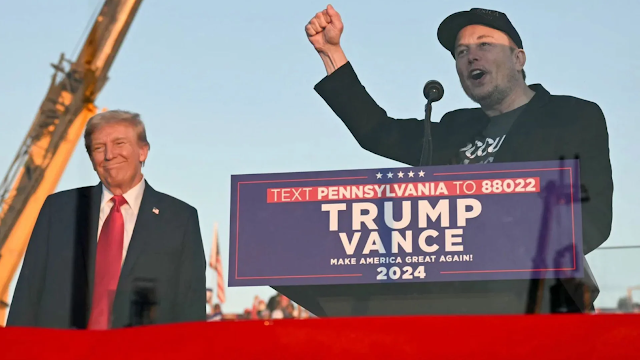Elon Musk’s $47 Million Offer to Protect Free Speech – A Bold Move or Controversial Tactic?
In an unexpected and bold move, Elon Musk, CEO of Tesla and SpaceX, has announced a $47 million offer through his America PAC to protect free speech and the Second Amendment. The offer, made at a 2024 U.S. Presidential Election rally, is specifically aimed at registered voters in key swing states. Musk's proposal, however, goes beyond simply supporting free speech—it incentivizes voters to gather signatures for a petition supporting the First and Second Amendments by offering a lucrative financial reward.
The First Amendment of the U.S. Constitution enshrines crucial freedoms: freedom of speech, press, religion, assembly, and the right to petition the government. The Second Amendment protects the right to bear arms. Both amendments form the cornerstone of the Bill of Rights, which was ratified in 1791. Musk’s offer is designed to protect these rights, which he claims are under threat in several battleground states, including Pennsylvania, Georgia, Arizona, North Carolina, and Michigan. By offering $47 million to those who successfully refer petition signers, Musk aims to galvanize a movement around these core constitutional principles.
The First Amendment of the U.S. Constitution enshrines crucial freedoms: freedom of speech, press, religion, assembly, and the right to petition the government. The Second Amendment protects the right to bear arms. Both amendments form the cornerstone of the Bill of Rights, which was ratified in 1791. Musk’s offer is designed to protect these rights, which he claims are under threat in several battleground states, including Pennsylvania, Georgia, Arizona, North Carolina, and Michigan. By offering $47 million to those who successfully refer petition signers, Musk aims to galvanize a movement around these core constitutional principles.
Musk’s decision to offer financial incentives for political participation has sparked controversy. Critics argue that it undermines the integrity of the democratic process by attaching a monetary reward to a fundamental civic duty. Advocates, on the other hand, believe that Musk is using his financial power to highlight important issues that are being overshadowed in current political discourse, particularly in the context of rising concerns over governmental and technological censorship.
At the heart of Musk’s advocacy is his alignment with Donald Trump, the former president who shares Musk’s commitment to free speech and gun rights. Musk has expressed concerns over what he sees as the increasing restrictions on free speech, particularly on social media platforms. He argues that large governmental and technological institutions are infringing on individual freedoms, particularly the First Amendment, by implementing stricter controls and regulations. This advocacy aligns with Trump’s platform, which emphasizes personal freedom and limited government intervention.
At the heart of Musk’s advocacy is his alignment with Donald Trump, the former president who shares Musk’s commitment to free speech and gun rights. Musk has expressed concerns over what he sees as the increasing restrictions on free speech, particularly on social media platforms. He argues that large governmental and technological institutions are infringing on individual freedoms, particularly the First Amendment, by implementing stricter controls and regulations. This advocacy aligns with Trump’s platform, which emphasizes personal freedom and limited government intervention.
Musk’s participation in Trump’s rally marked a significant moment, as it was the first time the billionaire tech entrepreneur publicly joined forces with Trump. Musk’s alignment with Trump is notable, not only because of their shared values but also because of the potential business implications. Musk’s companies could benefit from the deregulatory policies Trump has proposed, particularly those affecting social media and gun rights. This duality—political advocacy intertwined with potential business benefits—has raised questions about Musk’s true motivations.
Despite the controversy, Musk’s offer has captured the attention of voters across the country, particularly in the swing states that could determine the outcome of the 2024 election. Whether Musk’s financial incentive will sway voters or spark a broader movement remains to be seen. The October 21 deadline for participation looms large, and the outcome could have far-reaching implications for both the election and the future of free speech and gun rights in America.
In conclusion, Elon Musk’s $47 million offer to protect free speech through incentivized petition signatures is a bold and contentious move. While some view it as an innovative way to raise awareness about constitutional rights, others see it as a dangerous precedent in political campaigning. As the 2024 election approaches, Musk’s involvement highlights the growing intersection of wealth, politics, and personal freedom.
Despite the controversy, Musk’s offer has captured the attention of voters across the country, particularly in the swing states that could determine the outcome of the 2024 election. Whether Musk’s financial incentive will sway voters or spark a broader movement remains to be seen. The October 21 deadline for participation looms large, and the outcome could have far-reaching implications for both the election and the future of free speech and gun rights in America.
In conclusion, Elon Musk’s $47 million offer to protect free speech through incentivized petition signatures is a bold and contentious move. While some view it as an innovative way to raise awareness about constitutional rights, others see it as a dangerous precedent in political campaigning. As the 2024 election approaches, Musk’s involvement highlights the growing intersection of wealth, politics, and personal freedom.



Comments
Post a Comment